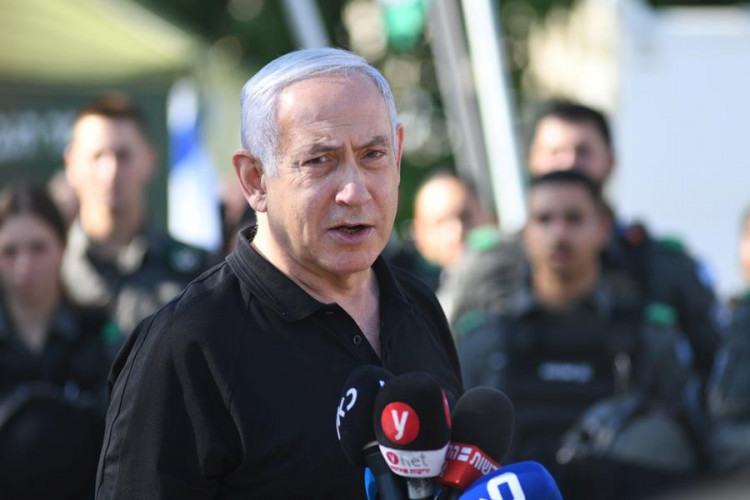An explosive drone launched by Hezbollah from Lebanon struck Israeli Prime Minister Benjamin Netanyahu's private residence in Caesarea on Saturday, marking an unprecedented escalation in the ongoing conflict between Israel and Hezbollah. This is the first time since the beginning of the current hostilities that a target directly linked to Netanyahu has been hit.
Netanyahu's spokesperson confirmed that his private residence in the coastal town was targeted, but added that neither the prime minister nor his wife, Sara, were present at the time. "The prime minister and his wife were not at the residence at the time of the attack, and there were no casualties," the spokesperson said. The Israeli government has not detailed the extent of the damage caused by the drone.
According to the Israel Defense Forces (IDF), three drones were launched from Lebanon early on Saturday morning. Two of the drones were intercepted by Israeli attack helicopters before crossing deep into Israeli territory, while the third managed to evade defense systems and hit a building in Caesarea. It remains unclear whether the building was part of Netanyahu's residence, and officials have not provided further clarification on the damage.
In response to the attack, Netanyahu released a short video in English, reiterating Israel's determination to combat Iran and its regional proxies. "Nothing will deter us from continuing our fight against Iran and its proxies," Netanyahu said, in reference to Hezbollah, which is widely considered to be supported by Tehran.
The IDF also reported that Hezbollah's drone attack was accompanied by a barrage of rocket fire from Lebanon. In total, 55 rockets were launched into northern Israel from Lebanon on Saturday, increasing concerns of a wider conflict on Israel's northern front. The IDF said that it has launched retaliatory strikes against targets in Lebanon that it claims are linked to Hezbollah.
The escalating conflict has sparked concerns among international observers of a broader confrontation between Israel and Hezbollah. The drone attack on Netanyahu's residence is seen as a significant escalation, with Israeli officials calling it a direct provocation. "This is a red line for Israel," said an unnamed Israeli defense official. "Any attack targeting our leaders is a direct challenge to our national security, and it will not go unanswered."
Meanwhile, Lebanon's Health Ministry reported that two people were killed in an Israeli airstrike in Jounieh, a Christian-majority town north of Beirut, on Saturday. According to local media, the strike hit a moving vehicle traveling along the main highway. This strike was unusual, as most of Israel's recent operations in Lebanon have focused on Shiite-majority areas where Hezbollah has a significant presence.
The IDF has stated that it will continue its operations against Hezbollah in response to any further provocations. "We will respond to any attempt to harm Israeli citizens or our leadership," an IDF spokesperson said. The spokesperson also reiterated that the drone attack would be met with "appropriate and forceful measures" to deter future threats.
Hezbollah has not officially claimed responsibility for the drone attack. However, tensions between the militant group and Israel have been steadily escalating since October, with both sides trading fire across the Lebanese-Israeli border. Hezbollah has frequently threatened retaliation for Israeli airstrikes, which it claims target its positions and those of its allies in Lebanon and Syria.
Israeli Prime Minister Netanyahu uses two private residences-one in Caesarea and another in Jerusalem-in addition to the official prime ministerial residence at Beit Aghion, which is currently undergoing renovations. The attack on his Caesarea home has raised questions about the adequacy of security measures around these private properties.
The situation on Israel's northern border remains tense as Hezbollah continues to escalate its activities. Analysts have warned that the involvement of Hezbollah, combined with Israel's military actions, risks spiraling into a broader conflict. "This latest attack demonstrates Hezbollah's willingness to target not just military installations but also high-profile political figures," said defense analyst Jonathan Schanzer. "It reflects an increasing boldness by Hezbollah, likely driven by its backing from Iran."




